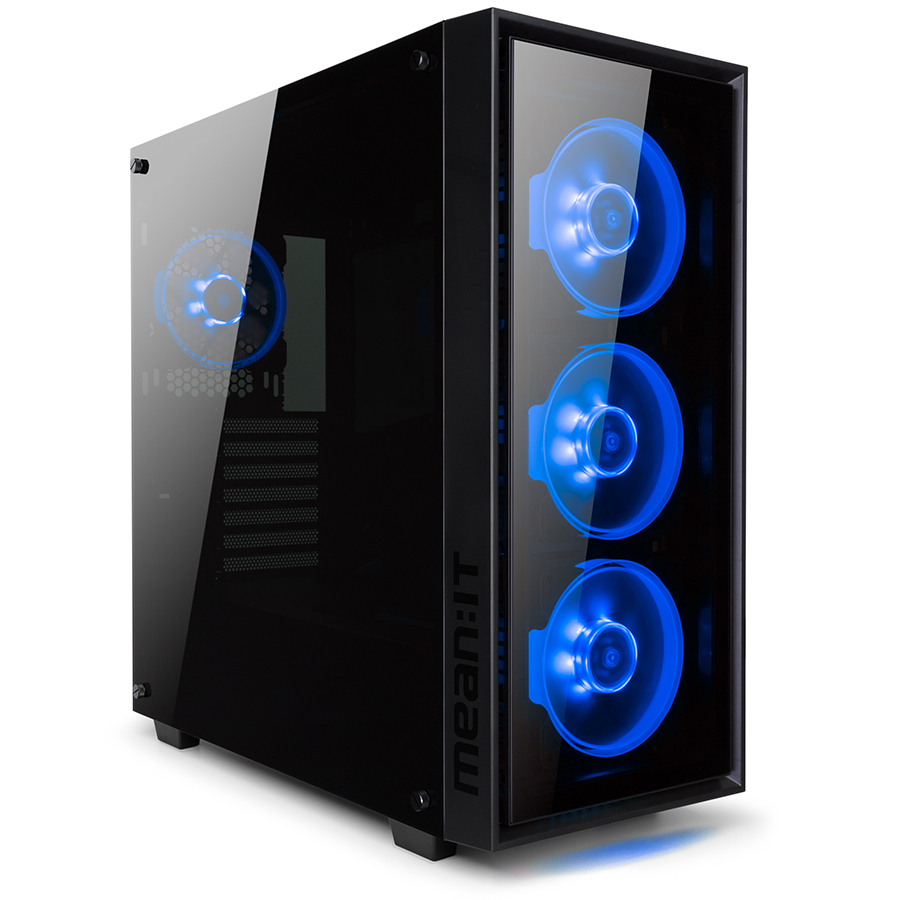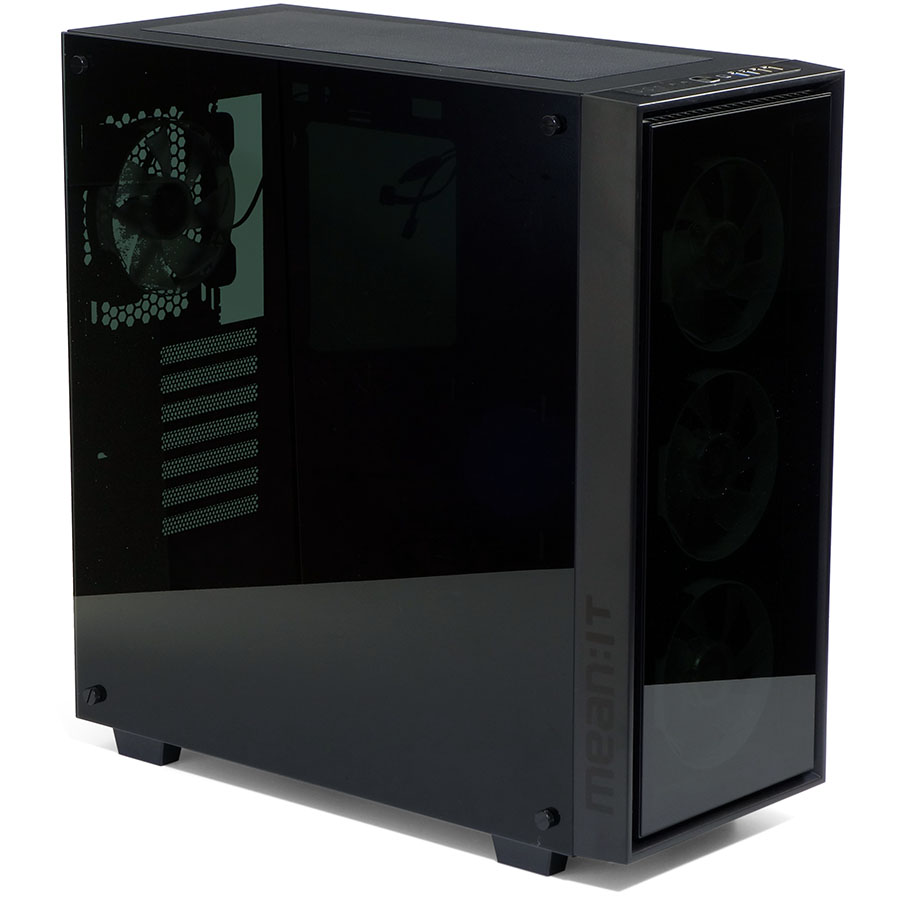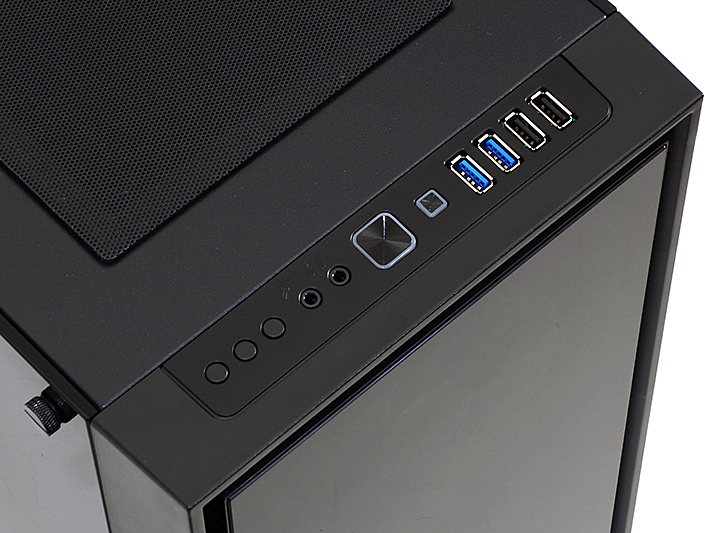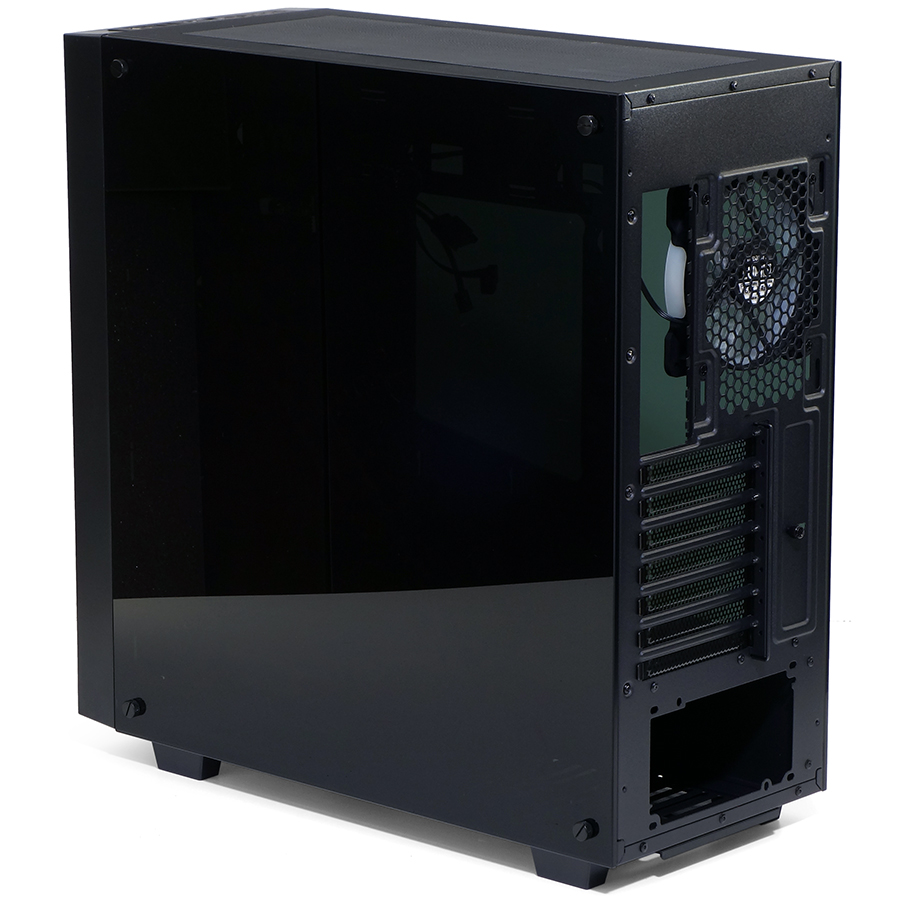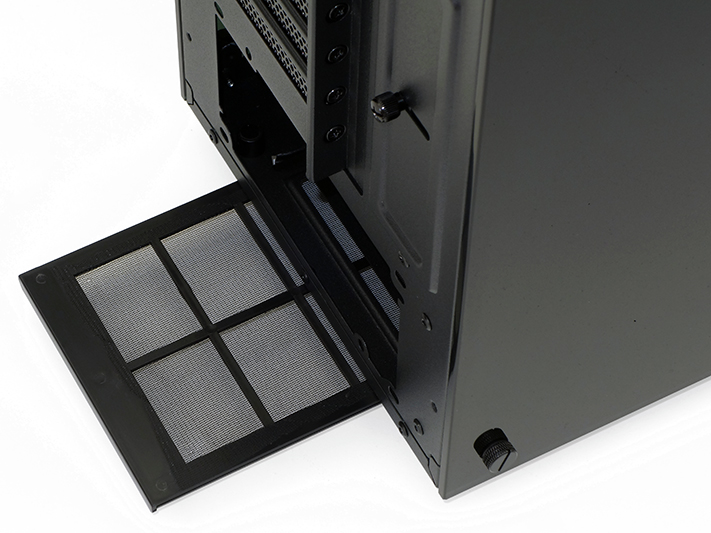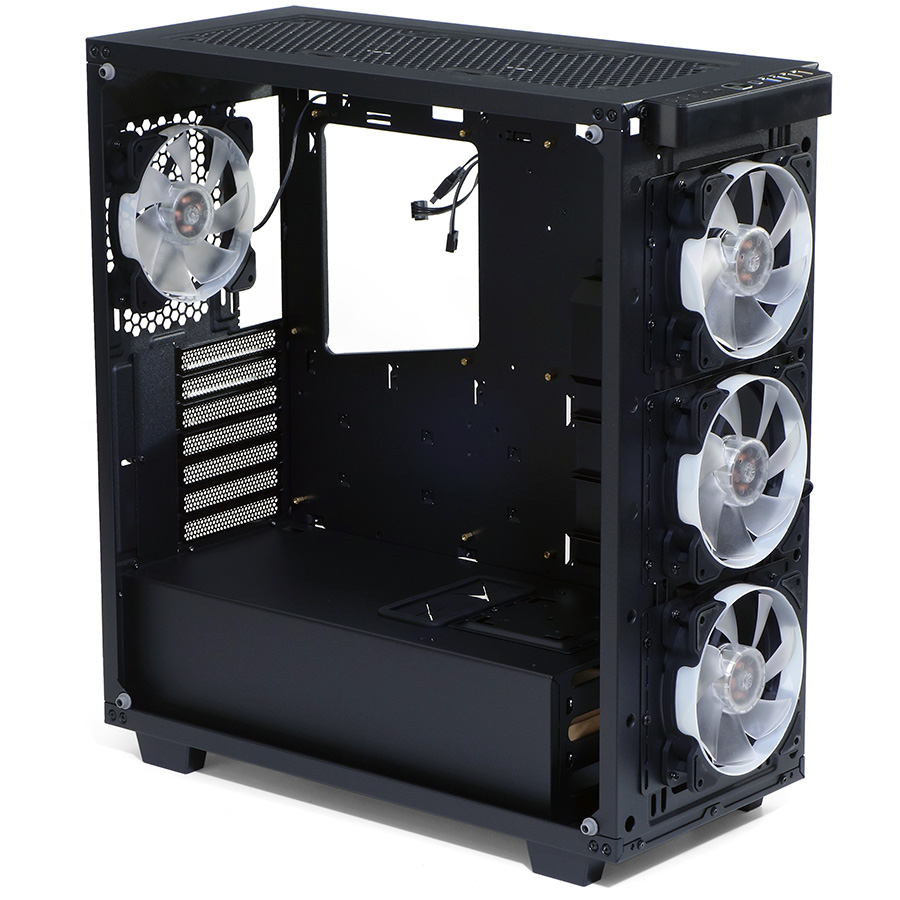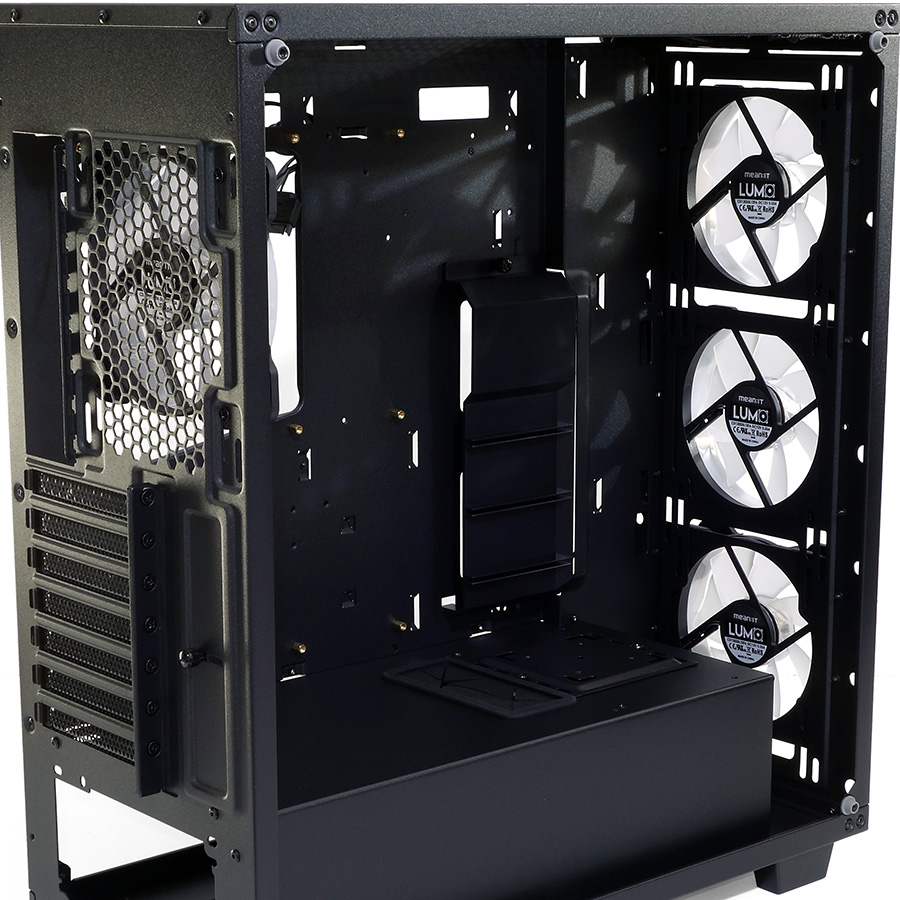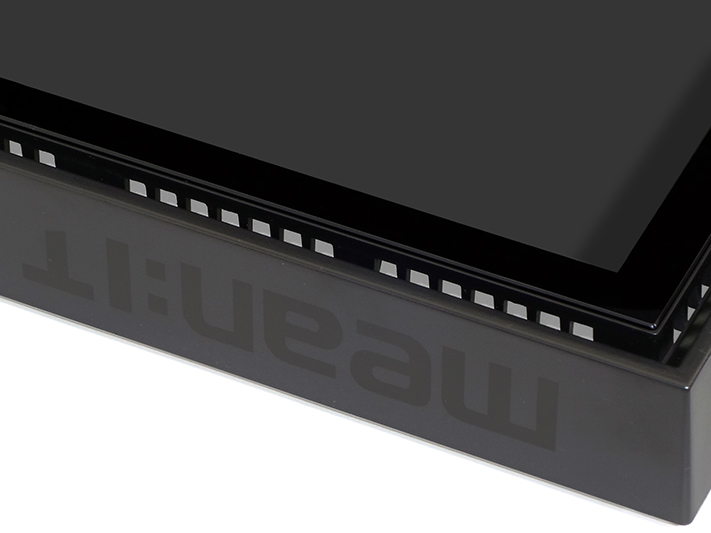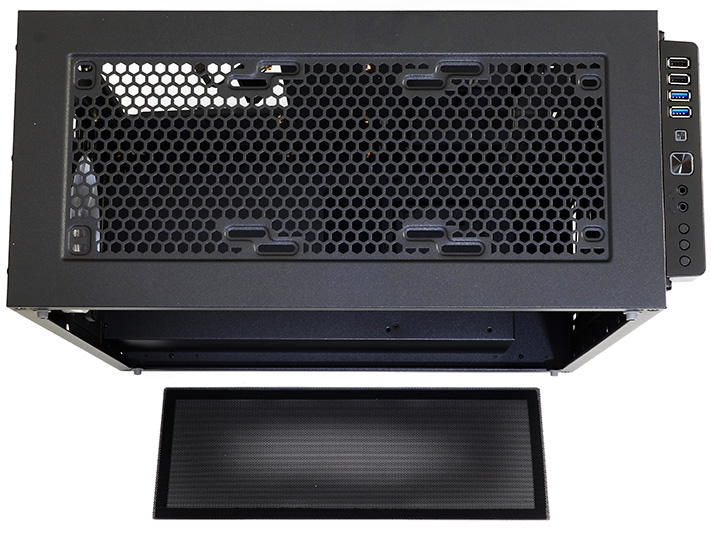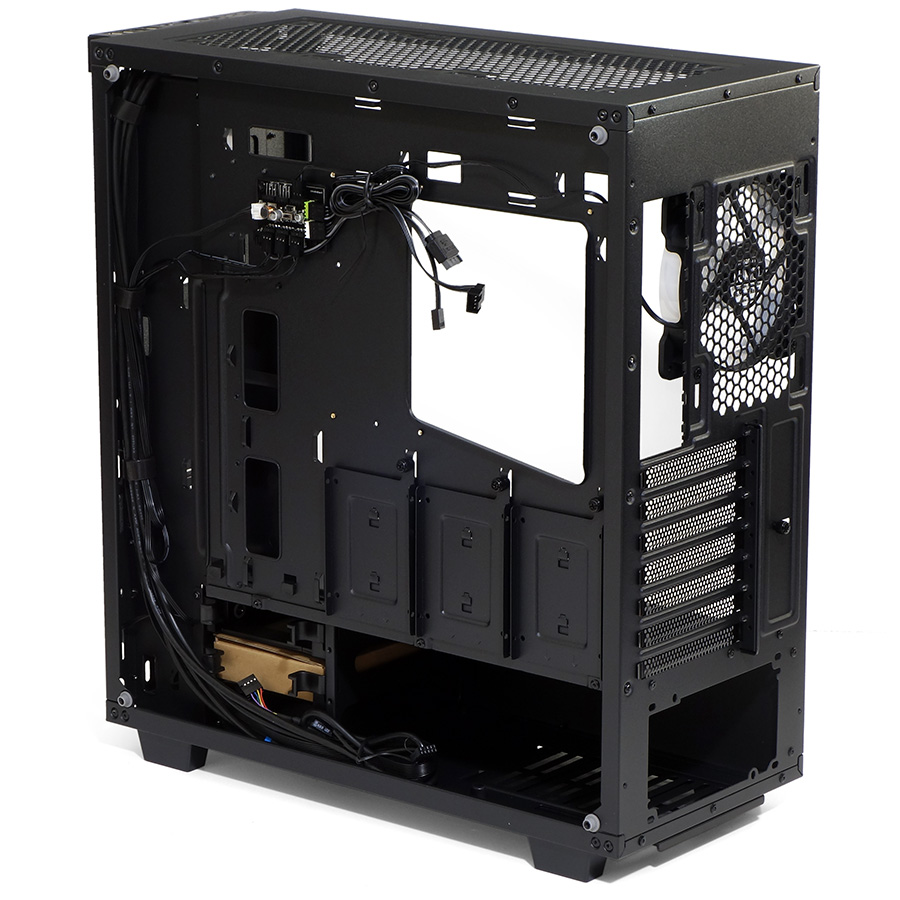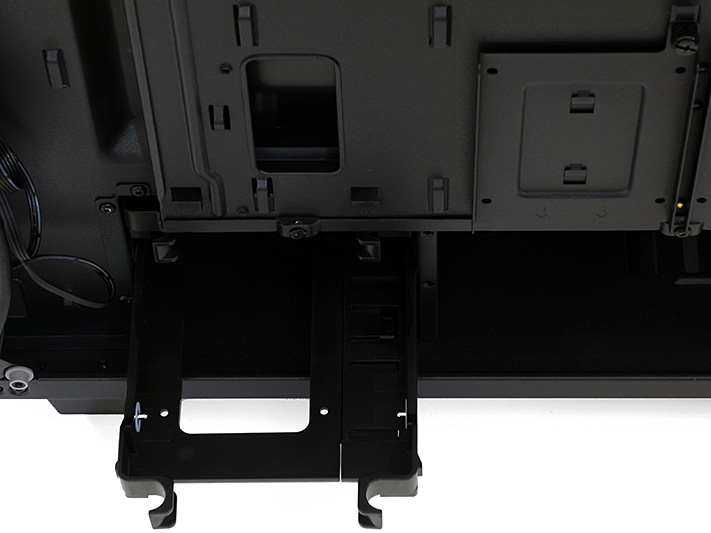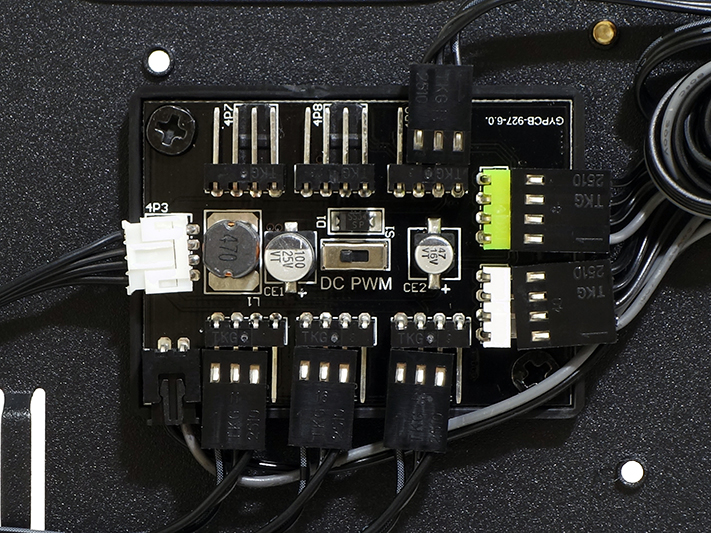Early Verdict
Despite its spacious interior and great upgrade potential, poor airflow in the stock fan configuration leaves the 5PM without an award.
Pros
- +
Great look of three tempered glass panels
- +
Great look of four LED fans (three front, one rear)
- +
Good front panel port selection
- +
Includes PWM-capable hub for motherboard-based fan control
- +
True EATX compatibility
- +
Low price
Cons
- -
Poor as-delivered airflow
Why you can trust Tom's Hardware
Specifications & Features
Premium cases have capitalized on the look of tempered glass to exude class, and it didn’t take long for budget companies to catch on, yet most of those cases have glass on only one side. The added cost associated in additional panels (pricier shipping, increased damage risk) had been borne by only a few budget-minded companies, and none of those have yet produced a case with three glass panels for under $100. Enter the 5PM from mean:it (aka meanit).
With three LED fans up front and enough room for true EATX motherboards (including the provision of extra standoffs), the 5PM shoots straight for the market previously assumed by the award-winning Cullinan. The mean:it sample comes at a lower price, and that builds our anticipation for yet another example of value leadership. But we must test it first!
Specifications
Keen eyes will notice that it’s possible to see right through the empty 5PM, thanks primarily to the large hole in its motherboard tray that allows CPU cooler support plates to be installed on the backs of most already-mounted motherboards. Those who can’t see this might need to adjust their monitors, though the dark tint of two panels together forces one to look more closely.
Front-panel ports face upward from the top edge and include two USB 3.0, two USB 2.0, and headphone and audio jacks. The power button is capped in anodized aluminum and surrounded by a power indicator ring, while the likewise-capped reset button is surrounded by an HDD activity indicator ring. The fan controller has three buttons for off, low, and high, while the circuit board itself can be switched between PWM and DC mode.
In PWM mode, the “High” function reverts speed control to a motherboard fan header. We call this a two-speed controller since “off” isn’t technically a speed, but mean:it refers to the ability of high speed mode to function either as a PWM repeater or pass-through as two of three possible settings (low, high, auto, though switching between high and auto requires opening the case).
A look around back reveals the other glass side panel, eight slots, a 120mm fan mounted on slots to allow raising and lowering of its position, an additional set of screw slots for 140mm fan upgrades, seven expansion slots, and a single-screw slide cover for the extremely narrow expansion card tab opening.
A power supply dust filter slides out from the back edge of the bottom panel to ease maintenance. This is the 5PM’s only intake filter.
Get Tom's Hardware's best news and in-depth reviews, straight to your inbox.
The 5PM’s three 120mm intake fans are mounted on adapters, between the front panel of the metal chassis and plastic-framed glass fascia. Additional fan mounts are found behind these adapters.
Those additional fan mounts support three 140mm or 120mm fans and/or radiators. Space at the top is limited to 17.5” by front panel cables, while space behind the fan mounts is limited to a 2.4” gap between the front panel and power supply shroud. The front-mounted fan adapters make it possible to retain the factory fan configuration while installing a radiator of different size or spacing.
A plastic cable cover also seen above can be removed to make room for 13” deep boards, and a water pump mount is located in front of that cover on the power supply shroud.
Ventilation for front-panel fans is provided by slots behind the glass panel of the fascia.
The top panel holds 3x 120mm and 2x 140mm radiators up to 2.3” total thickness (including fans). The length is restricted to 16.3”, again by front-panel cables. Magnetic strips secure a mesh dust filter over this opening.
The 5PM has extremely little cable space behind the motherboard tray (approximately ½”), apart from an inward step around 14” from the back panel that opens it up another ½”. That inward step is why the case has a 14” motherboard depth limit in spite of its 17” supported card length. Three 2.5” SSD trays further limit space behind the motherboard.
Two additional trays support both 3.5” and 2.5” drives, with holes on the bottom for screw mounting of the smaller drives, and silicon-damped pins on the side to reduce the vibration of 3.5” drives.
The PWM-compatible 6-fan hub is factory connected to the three front-panel intake and single rear exhaust fans, leaving two open headers. The two four-pin PWM headers connect an input cable from the CPU fan header, and an output cable for the CPU fan.
MORE: Best Cases
MORE: All Case Content
-
Brian_R170 I looked at it and thought "WOW! That's a nice looking clean design for under $80" So now the price is $120 and it turns out the cooling is inadequate. Letdown.Reply -
Crashman Reply
Fortunately, our new tester's system is too lame to push the thermal boundaries of these cases, which is allowing a greater number of inadequate cases to "pass the test".20654336 said:I looked at it and thought "WOW! That's a nice looking clean design for under $80" So now the price is $120 and it turns out the cooling is inadequate. Letdown.
-
Crashman Reply
You must have realized by now that most of these companies aren't copying a specific case, but are simply apply design trends to whatever their supplier is offering. Remember when the first popular Antec case was a "copy" of a Chieftech Dragon, only it wasn't technically a "copy" in that it WAS a Chieftech Dragon?20655495 said:Almost a carbon copy of a Thermaltake VIEW 31.
-
Dark Lord of Tech Just stating that because I own the View 31 and it looks like a mirror copy. I like the case , wish it was really $78.00.Reply
